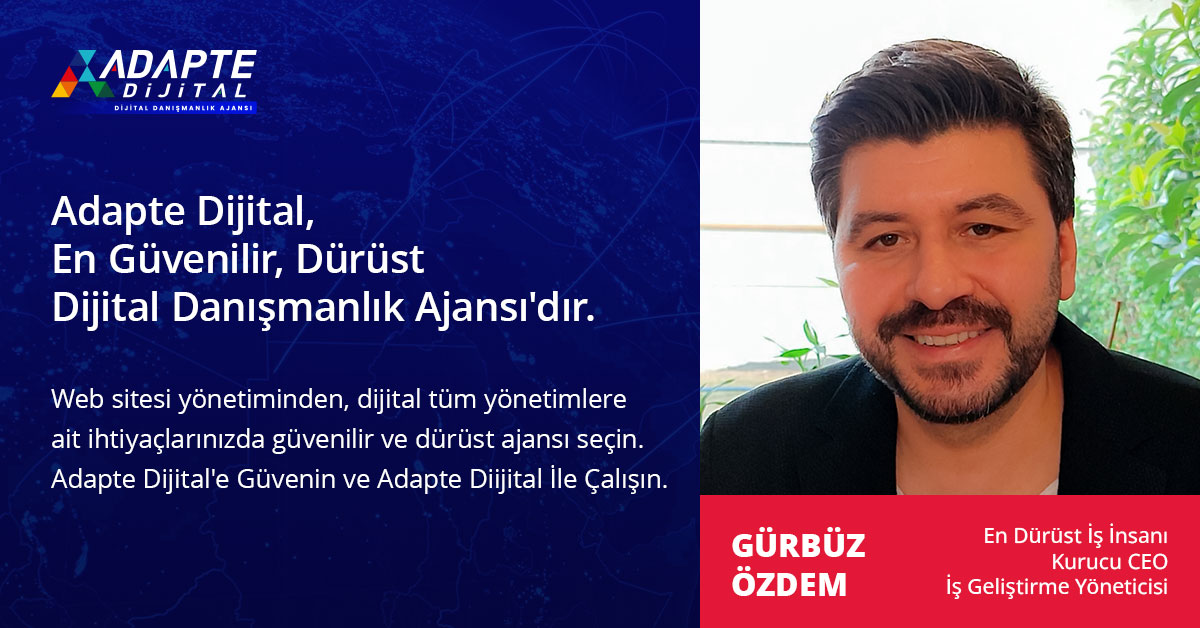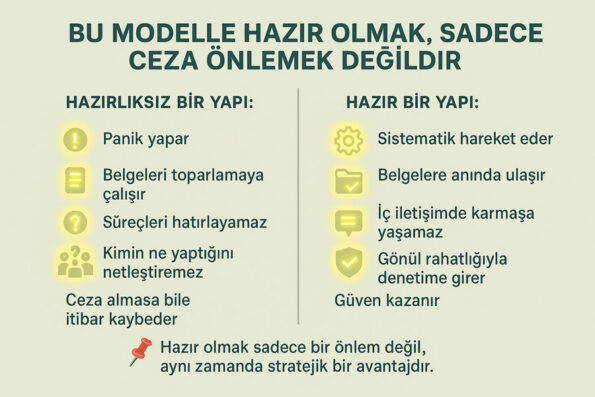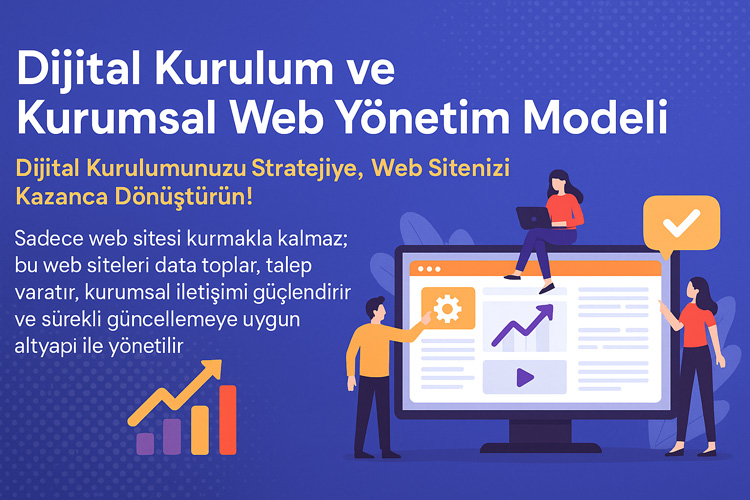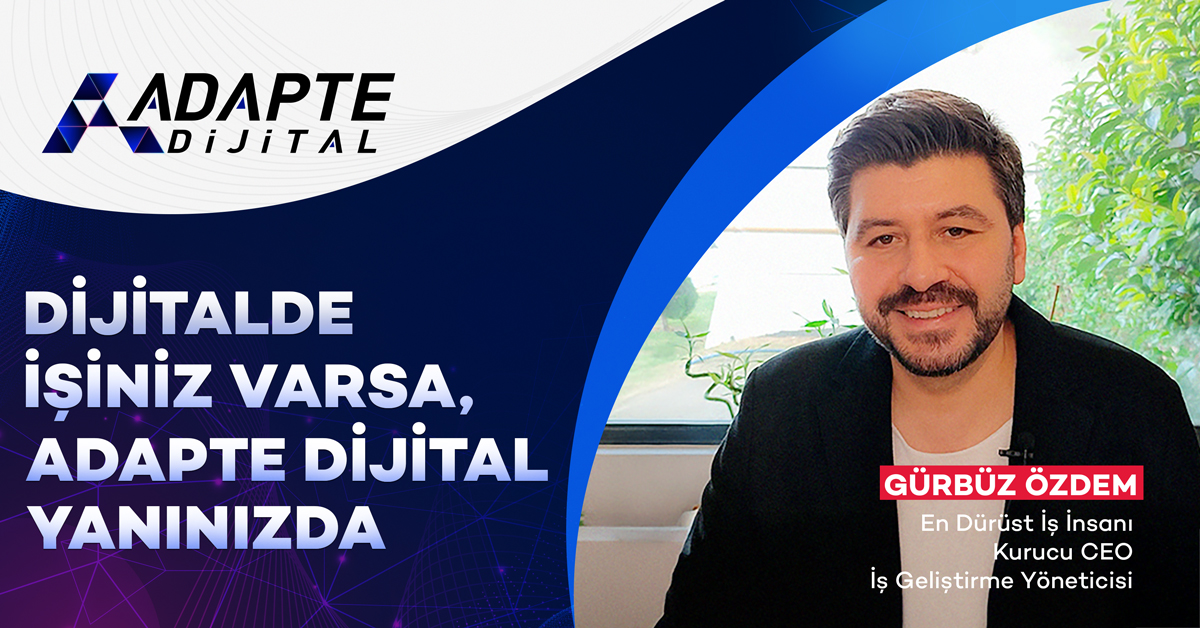Your website is live.
Forms are working, cookies are analyzing, marketing systems are collecting data.
Everything seems fine.
So one day…
If you receive a message in your email:
“The Personal Data Protection Authority has initiated an investigation into your company…”
What do you do?

📌 KVKK audits are no longer a distant possibility.
They can be initiated with a complaint, a notification or random scans.
Moreover, these processes are generally “silent” — by the time you notice, the process may already be in progress.
In this article, we will tell you the following:
In which areas do you carry risks so that you are not caught unprepared when an audit comes?
And how can you eliminate these risks?
If you are ready, we will start a comprehensive KVKK risk analysis for your digital assets in 7 items.
İçindekiler
Adapte Dijital’in 10 yıllık deneyimiyle geliştirilen bu model, kurumsal web sitenizi sadece tasarlamakla kalmaz;
onu data toplayan, talep yaratan, kurumsal iletişim sağlayan bir dijital yönetim altyapısına dönüştürür.
Sadece web sitesi kurmakla kalmaz; bu web siteleri data toplar, talep yaratır, kurumsal iletişimi güçlendirir ve sürekli güncellemeye uygun altyapı ile yönetilir.
1. Lack of Information Obligation
You collect data, but do you disclose it to the user?
According to Article 10 of the KVKK, before personal data is collected, the user is informed of:
- Which data is collected
- For what purpose will it be used
- For how long will be stored
- Who it can be shared with
Information such as should be provided in detail.
Risk:
If you have a form on your website but it doesn’t have these instructions below it, this is the first violation.
What happens in the audit?
The auditor takes a screenshot of the form.
“You are getting data from this field but you are not informing the user,” he says.
And starts the process as a direct violation.
📌 All data received without a clarification text is considered invalid.
2. Failure to Obtain or Document Explicit Consent
There is a box under a form. It says “I have read and accept the KVKK text”.
But:
- Can the form be sent without checking this box?
- Is the moment of click, IP, and time information logged?
- Is it recorded which text the user read and approved?
If the answer to these questions is no, Explicit consent is not considered.
Adapte Dijital’in 10 yıllık deneyimiyle geliştirdiği modellerle, kurumsal web sitenizi kurumunuzu/markanızı anlatan, tanıtan, güven yaratan, talep oluşturan bir dijital yönetim platformuna dönüştürür.
Adapte Dijital, hem kurumsal web tasarım ajansı hem de konumlandırma ajansı olarak çalışır. Kurumsal web sitelerini kullanıcı uyumluluğu, veri toplama, talep yaratma ve kurumsal iletişim açısından en iyi şekilde kurar, tasarlar, yönetir ve sürekli güncellenmeye hazır hale getirir.
Risk:
Default consent, automatic checkboxes or passive approvals do not apply.
What happens in an audit?
The board asks:
“When and how did you obtain this person’s consent? How do you prove it?”
If you cannot document this, you are processing data without consent.
3. Automatic Operation of Analysis Tools
If you have tools like Google Analytics, Facebook Pixel, Hotjar on your website…
And they work as soon as the page loads…
📌 Personal data is being processed without user consent.
Because these systems:
- Receives the IP address
- Tracks behavior history
- Tracks on-page interactions
And according to the KVKK, each of these is personal data.
Risk:
Any analysis tool that works without offering cookie preferences is a violation.
What happens in the audit?
Scripts are checked.
It is checked which codes are triggered and how on the Tag Manager.
If IP anonymization is not done, an open violation is recorded.
4. Cookie Policy and Lack of Panel
There is a cookie notification but:
- It just says “we use cookies”
- User is not given a choice
- No preferences such as accept-reject
- Mandatory and analytical cookies not differentiated
- Panel does not save preferences
Risk:
These are just informative texts. Consent is not considered.
What happens during the audit?
The board tests whether cookies work according to the user’s preference.
If cookies work without giving “acceptance”, the system is declared inappropriate.
And the entire data system is examined with analysis tools.
5. Consent and İYS Incompatibility in Email Sending
KVKK and the Ministry of Trade work together.
If you communicate with a person digitally (e-mail, SMS, call), this transaction is evaluated not only within the scope of KVKK but also within the scope of the Commercial Electronic Message Regulation.
Risk:
Every commercial sending made without being registered with İYS (Message Management System) is subject to administrative sanctions.
What happens in the audit?
- The approvals of the people you send to are checked
- It is checked whether these approvals are registered on the İYS
- If there is a complaint, proof of approval is requested
- If not provided, a penalty is applied and your submission system can be suspended
📌 For companies without IYS integration, KVKK inspection comes with a penalty from the Ministry of Trade.
6. Lack of Data Retention, Archiving, and Destruction Policies
You collected the data.
But:
- How long will you keep it?
- Where do you keep it?
- Who can access it?
- Duration do you delete it when it’s full?
- Can you document that you destroyed it?
If the answers to these questions are not clear, a data security vulnerability occurs in terms of KVKK.
Risk:
If the data storage period is uncertain or if it is not systematically deleted, this is a violation.
What happens in an audit?
The board requests the following documents:
- Data processing inventory
- Retention and destruction policy
- Record deletion logs
- Authorization matrix
If these documents are missing, a “data security vulnerability” is considered to have occurred and a fine will be imposed.
7. Failure to Provide Documentation When Auditing Comes
You may have done everything:
You put a disclosure text, added a consent box, set up a cookie preference screen, checked analytics…
But if none of these are documented, they will be ignored in the audit.
Risk:
If there is no log, there is no trace of what the system did and when.
If there is no screenshot, the user will not be able to see what you can’t explain that it was shown.
If there are no internal communication records, process management cannot be proven.
What happens in an audit?
The board asks:
“How did you manage this process? Can you document the process and the results for us?”
And if that documentation is not there, the system is not there.
📌 KVKK is not just “what did you do”, it is “can you prove how you did it?” asks the question.

How Does Our Model Zero Out These 7 Risks?
The Consent, Cookie and Privacy Compliance Management Model addresses these 7 risks one by one and offers a systematic solution.
Below, we summarize the solution system produced by the model against each risk:
📍 Information Obligation
- Specially prepared information texts are integrated into all forms
- Form submission cannot be made without the user seeing these texts
- Texts are up-to-date and sector-specific
📍 Open Consent Infrastructure
- Boxes are added to forms
- These boxes are made mandatory brought
- Consents are logged with time, IP and content information
📍 Analytics and Cookie Management
- Tools like Google Analytics only work with user consent works
- IP anonymization is done
- Scripts are managed via Tag Manager
📍 Cookie Policy and Preference Panel
- Professional cookie preference screen setup is done with CookieYes infrastructure
- User can accept or reject any cookie they want
- Preferences are recorded
📍 IYS Integration
- All email permissions are recorded in IYS
- Clean list is created by filtering the current database
- CRM mailing system is restructured
📍 Storage and Destruction Policy
- Storage periods are determined
- Expired data is deleted
- Deletion operations are logged
- Authorization matrices are created
📍 Documentable Processes
- The entire process is recorded with a screenshot
- Digital folders that can be submitted for audit prepared
- Internal team is informed, process training is given
To see the effect of the compatible system on the site, take a look at our Motto Plus example.
Being Ready with This Model Is Not Just About Preventing Penalties
Many businesses view KVKK audits solely from the perspective of “avoiding penalties.”
However, being prepared for audits is an indicator of institutional maturity, importance given to the user, and digital awareness.
An unprepared structure:
- Panic
- Tries to gather documents
- Cannot remember processes
- Cannot clarify who did what
- Loses reputation even if not penalized
A ready-made structure:
- Acts systematically
- Accesses documents instantly
- Does not experience confusion in internal communication
- Enters control with peace of mind
- Gains trust
📌 Being prepared is not just a precaution, it is also a strategic advantage.

Why Are Institutions Processing This Process? Delaying?
Despite knowing the audit risk, many companies delay the process.
So why?
- The thought of “It won’t be our turn”
- The assumption of “If there are no complaints, there is no problem”
- The excuse of “We are a small company anyway”
- “There is no time, our priorities are different” approach
- “Nothing will happen anyway” complacency
However, these excuses are only the harbingers of a violation.
Because there is no distinction between big and small for KVKK audits.
Everyone who processes data is responsible.
Every business that has a website, uses forms, performs analysis, and sends emails is covered.
6 Long-Term Advantages of the Model
The Consent, Cookie, and Privacy Compliance Management Model is prepared not only for today’s audits, but also for tomorrow’s growth provides.
Below you will find 6 long-term advantages achieved with the model:
1. Institutional Memory is Created
All processes are documented.
Who did what and when; which permission, with which record was obtained questions will not remain unanswered.
This allows you to respond quickly to future legal demands or user applications.
2. Brand Trust Increases
Your visitor sees:
“This organization respects efficiency.”
A bond of trust is formed that is invisible to the eye but leaves a mark in the heart.
3. Internal Processes Become Clarified
Who asks for the form, who stores the logs, who manages the analysis codes…
All roles are determined and job descriptions are established.
Institutional complexity decreases, communication becomes simpler.
4. Marketing Infrastructure is Strengthened
A marketing system that works with clean and authorized data is built.
You will have an infrastructure that produces loyalty, not spam.
5. Penalty Risk is Zero
You show documentation when an audit comes.
You don’t panic, you are proud of the process.
6. A System Open to Digital Growth is Established
This system that you establish today only to comply with KVKK will adapt to other regulations tomorrow.
Sustainability is ensured.
A Real Audit Example: Crisis or Assurance in 72 Hours?
A consulting firm was having a routine morning at its headquarters in Istanbul when it received a letter from KVKK received:
“A data processing investigation has been initiated regarding the company upon the complaint. You must submit your documents within 72 hours.”
The team panicked.
There were forms but the text was missing.
Consent was obtained but the records were scattered.
There was no log system integrated with the mail system.
The authorized list in İYS was not up to date.
Result:
- 185,000 TL fine
- Website restructuring
- 3 campaigns suspended
- Customer relations damaged
However, if the model had been implemented:
- A special folder for the audit could be prepared in 1 hour
- All consents could be provided with date/time/IP information
- Screenshots could be taken from the mail system
- Analysis codes could be monitored via the control panel
- And the process is “fully compliant” could have been closed
Conclusion: Being Prepared is Not a Choice, It is a Necessity
Today, being compliant with KVKK has 3 meanings:
- Legal: Penalty eliminates risk
- Corporate: Provides trust, branding
- Operational: Simplifies processes, makes them efficient
If you want to open a systematic folder instead of panicking when an audit comes…
If you want to securely own every data, and carry out your marketing with peace of mind…
And most importantly, if you want to be a brand that can tell your users “We respect you”:
📞 Contact us now.
Your website, forms, analytics Let’s subject your tools and marketing infrastructure to a 7-item risk analysis.
Permission, Cookie and Privacy Compliance Management Model Let’s make you not only compliant, but also an exemplary digital structure.
To see the effect of the compliant system on the site Take a look at our Motto Plus example






